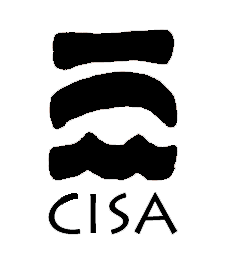WASTE PICKER RIGHTS AND SOCIAL INCLUSION: THE CREATION OF A UNIVERSITY WITH KNOWLEDGE DEMOCRACY
- Available online in Detritus - Volume 26 - March 2024
- Pages 114-122
Access restricted to subscribed members only
Released under All rights reserved
Copyright: © 2023 CISA Publisher
Abstract
UNICATA is a university for and with waste pickers based on Paulo Freire's popular education pedagogy, knowledge democracy and the practice of peer learning. The aim is to create a learning space of excellence where one can dream, dare, innovate, and be inspired by transformative ideas and achievements. This university will increase access to knowledge and expand the possibilities for reflection, for a population that suffers from social exclusion and high vulnerability. Worldwide waste pickers are major protagonists in collecting, separating, and redirecting recyclable materials into the circular economy. Research demonstrates that waste pickers are central figures in educating households on waste separation practices, adding value to recovered materials, building community by integrating socially excluded individuals into their collective workspaces, indirectly also mitigating environmental and climate impacts. While these positive effects of inclusive recycling are increasingly recognized in the academic literature, unfair remuneration, stigmatization, and risk-prone or unhealthy working conditions are still the prevailing realities. This paper discusses reflections on recent experiences of implementing UNICATA in the metropolitan region of São Paulo, Brazil, in 2023, with a pilot project developing and delivering the introductory module which was successfully completed by 22 students. The research takes a social constructivist lens to uncover the colonial social and political injustices through experiential and student-centered education. Our results reveal some noticeable assets and barriers in creating inclusive education for a large population that is widely neglected, in many different geographic contexts, thus also filling a gap towards achieving the Sustainable Development Goals (SDGs).Keywords
Editorial History
- Received: 27 Nov 2023
- Revised: 02 Feb 2024
- Accepted: 11 Mar 2024
- Available online: 20 Mar 2024
References
Bulla, J., Rendon, M., & Trenc, J. (2021). Policing the stigma in our waste: what we know about informal waste pickers in the global north. Local Environment, 26:10, 1299-1312.
DOI 10.1080/13549839.2021.1974368
Carenzo, S. (2020). Contesting informality through innovation “from below”: epistemic and political challenges in a waste pickers cooperative from Buenos Aires (Argentina). Tapuya: Latin American Science, Technology and Society, 3(1), 441-471
Carlton University (2022). Experiential Learning. TLS Teaching Resources. Accessed at 10.9.2023. https://carleton.ca/tls/teachingresources/engaging-your-students/experiential-learning/
Dias, S. M. (2016). Waste pickers and cities. Environment and Urbanization, 28 (2), 375-390
Fals-Borda, O. (1987). The Application of Participatory Action-Research in Latin America. International Sociology, 2(4), 329–347
Fals-Borda, O. (2001). Participatory (Action) Research in Social Theory: Origins and Challenges. In P. Reason & H. Bradbury (Eds.), Handbook of Action
Feitosa, S. C. S. (1999). Método Paulo Freire-Princípios e Práticas de uma Concepção Popular de Educação. Dissertação. Programa de Pós-graduação em Educação. Universidade de São Paulo: São Paulo, 156 p
Freire, P. (2018). Pedagogy of the oppressed [s.l.] Bloomsbury Publishing USA
Freire, P. (2022). Pedagogia da autonomia. Rio de Janeiro: Paz e Terra, 19897
Gerberry, C. V. (2023). Developing self-efficacy through the social constructivist mentorship. Theory Into Practice, 62(1), 62-69
Grosfoguel, R. (2007). The Epistemic Decolonial Turn: Beyond Political-Economy Paradigms. Cultural Studies, 21(2-3), 211-223
Gutberlet, J., & Carenzo, S. (2020). Waste pickers at the heart of the circular economy: a perspective of inclusive recycling from the Global South
Gutberlet, J., Carenzo, S., Kain, J. H., & Mantovani Martiniano de Azevedo, A. (2017). Waste picker organizations and their contribution to the circular economy: Two case studies from a global south perspective. Resources, 6(4), 52
Gutberlet, J., Tadeu de Oliveira, D. & Rodrigues Costa de Castro, A. M. (Orgs.) (2023). Research production through citizen science by UNICATA students. Module 1 – Class 1. Vol. 1. ISBN 978-1-7776032-3-6
Hooks, B. (1994). Teaching to Transgress: Education as the Practice of Freedom. Routledge
Jasanoff, S. (2003). Technologies of Humility: Citizen Participation in Governing Science. Minerva, 41(3), 223-244
Kolb D. (1984). Experiential Learning as the Science of Learning and Development. Englewood Cliffs, NJ: Prentice Hall
Kopnina, H. (2020). Education for the future? Critical evaluation of education for sustainable development goals. The Journal of Environmental Education, 51(4), 280-291
Lavagnolo M.C. & Grossule V. (2018). From 3R to 3S: An appropriate strategy for developing countries. Detritus 04: 1–3.
DOI 10.31025/2611-4135/2018.13749
Mignolo, W. D. (2009). Epistemic Disobedience, Independent Thought and De-Colonial Freedom. Theory, Culture & Society, 26(7-8), 1-23
Mignolo, W. D. (2011). The Darker Side of Western Modernity: Global Futures, Decolonial Options. Duke University Press
Nowotny, H., Scott, P., Gibbons, M. (2003). Introduction: “Mode 2” Revisited: The New Production of Knowledge. Minerva, 41(3), 179–194. http://www.jstor.org/stable/41821245
Pascale, C.-M. (2018). Epistemology and Moral Economies of Difference: Transforming Social Research. International Journal of Critical Diversity Studies, 1(1), 45–57.
DOI 10.13169/intecritdivestud.1.1.0045
Piaget, J. (1973). To Understand Is to Invent: The Future of Education. Grossman Publishers
Quijano, A. (2000). Coloniality of Power, Eurocentrism, and Latin America. Nepantla: Views from South, 1(3), 533-580
Rutkowski, J. E., & Rutkowski, E. W. (2015). Expanding worldwide urban solid waste recycling: The Brazilian social technology in waste pickers inclusion. Waste Management & Research, 33(12), 1084-1093
Stirling, A. (2008). ‘ “Opening Up” and “Closing Down”: Power, Participation, and Pluralism in the Social Appraisal of Technology’, Science, Technology & Human Values 33.2: 262–294, (17) (PDF) Grassroots innovations and democracy. Accessed on September 10th, 2023: https://www.researchgate.net/publication/315753103_Grassroots_innovations_and_democracy
Thiollent, M. (2011). Metodologia da Pesquisa-Ação. (18th Ed.) São Paulo: Cortez
Tuhiwai Smith, L. (2012). Decolonizing Methodologies: Research and Indigenous Peoples. Zed Books
Vygotsky, L. S. (1978). Mind in Society: The Development of Higher Psychological Processes. Harvard University Press
Yardley, S., Teunissen, P. W. & Dornan, T. (2012). Experiential learning: AMEE guide No. 63. Med Teach., 34: e102–e115
Zavala, M. (2016). Decolonial methodologies in education. Encyclopedia of educational philosophy and theory, 1-6



